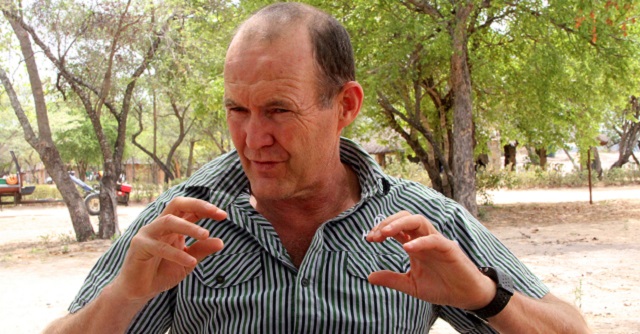The Sunday News

Rev Paul Damasane
I HAVE on a number of occasions on this column made reference to the importance of sound doctrine and spiritual formation among the Christian faith if the faith has to take itself into the next generations and millennia. There is no substitute to the teaching of sound doctrine.
Talking to a member of the Seventh Day Adventist Church recently he quipped that despite the fact that their church is growing rapidly many of the converts to Adventism come from Pentecostal and Protestant churches with very few coming from the Roman Catholic Church. I sought to verify this and found that it is because the Pentecostal churches to a large extent do not have a structured doctrinal and spiritual formation programme whereas the Roman Catholic Church has a strong tradition of teaching the catechism.
The SDAs are themselves very systematic in the instruction of doctrine and this is true whether you believe it or not. Their Sabbath lessons firmly ground the adherent to the tenets of Seventh Day Adventism. The same goes for the Roman Catholic Church where none can be neither baptised nor confirmed without a deep understanding of the Catholic Catechism.
In 1 Corinthians 14:19 the Apostle Paul says, “In the church I would rather speak five words with my mind, in order to instruct others, than 10 thousand words in a tongue.” In Galatians 6:6 he continues to say, “Let him who is taught the word share all good things with him who teaches.” Acts 18:25 says that Apollos “has been instructed in the way of the Lord.”
In each of these verses the Greek word for “instruct” or “teach” is katecheo. From this word we get our English word “catechise.” It simply means to teach biblical truth in an orderly way. Generally this is done with questions and answers accompanied by biblical support and explanation.
One may ask if there is a biblical pattern of doctrine and the answer is that several texts teach that there is. For example, in Romans 6:17 the Apostle Paul gives thanks that “you have become obedient from the heart to the pattern of teaching to which you were committed.” 2 Timothy 1:13 says, “Follow the pattern of sound words which you heard from me.” Acts 2:42 says, “They devoted themselves to the apostles’ teaching and doctrine” while 2 Thessalonians 2:15 says, “Stand firm and hold to the traditions which you were taught by us.” And Acts 20:27 says, “I did not shrink from declaring to you the whole counsel of God.” So it appears that there was a body of authoritative instruction and even a way of teaching it in the early church.
The catechism is very important because firstly we are required to “continue in the faith, to be stable and steadfast” (Col. 1:23). We cannot attain stability by mere spiritual gymnastics that include excessive glossolalia. A prophesy or the laying on of hands cannot and will not make you stable. Stability comes with knowledge and the acceptance of truth that is translated into the lifestyle of the individual. I see the seriousness of the Madrassa in the life of a young Muslim as an irreplaceable pillar in the development of faith in the way of Islam.
Further, the Bible urges us to “attain to the unity of the faith and of the knowledge of the Son of God, to a perfect man, to the measure of the stature of the fullness of Christ: so that we may no longer be children, tossed to and fro and carried about by every wind of doctrine” (Eph. 4:13-14). Once again the ability to not be moved by the deception of man is not a result of prayer per se. It is a result of teaching about the truth of the faith so that one can differentiate between fake and true Christianity. The winds of doctrine are many and yet the stable Christian will be firm and not moveable.
One cannot afford complacency because there are many deceivers out there. (1 John 2:26). The gullible will be deceived with ease. So many of us do not take time to study and be moved by the truth of the Word. It has become popular nowadays to get individuals who are simply “pushed by the spirit” (bafuqwe ngumoya) without a sound depth in doctrine. Such persons will always have one spirit after the other pushing them yet getting to no destination. The future of Christianity has to have a sound knowledge base over and above the vibrant spirituality. The two are mutually inseparable. One cannot do without the other.
Not all of us are schooled in the interpretation of scripture. The Apostle Peter says there are difficult doctrines “which the ignorant and unstable twist to their own destruction” (2 Peter 3:16). It therefore speaks to the need to have truth brought down from the top shelf to the reach of the shortest and slow learners among us believers. Yes one can pray for the spirit of wisdom and revelation yet that in my view is not enough.
A structured, simple and straightforward teaching method is critical to understand such doctrines as say the issues of the second coming of Christ. Some of us have depended on the so-called “prophetic revelation” without unpacking it for the simplicity of the hearer. That is why Habakkuk unequivocally states that, “it should be written clearly on tablets so that he may run that readeth it.” (Hab. 2:2) Not all doctrines are simple that is why we need the catechism. Ever heard of how one man called Joseph James caused the death of many people because of an unfortunate interpretation of the scriptures.
We do not just end up with people that know how to interpret scripture. Leaders must be raised up who can “give instruction in sound doctrine and also confute those who contradict it” (Titus 1:9). These leaders need to be trained. Yes there was a time when it was preached among Pentecostal circles that all we needed were men and women who had the Holy Spirit. Men and women consistently pushed by the spirit so to speak! Dear reader nothing is further from the truth than this last thought. We need men with the push of the spirit coupled with sound theology, such will surely show us the right way.
Christianity cannot be pushed to the next level by the spirit only, we need sound doctrine and that is why the catechism has to come back and take centre stage in the upbringing of a believer. Well, “lami ngifuqwe ngumoya” to pen this piece today for you dear! Till next week, Shalom!




